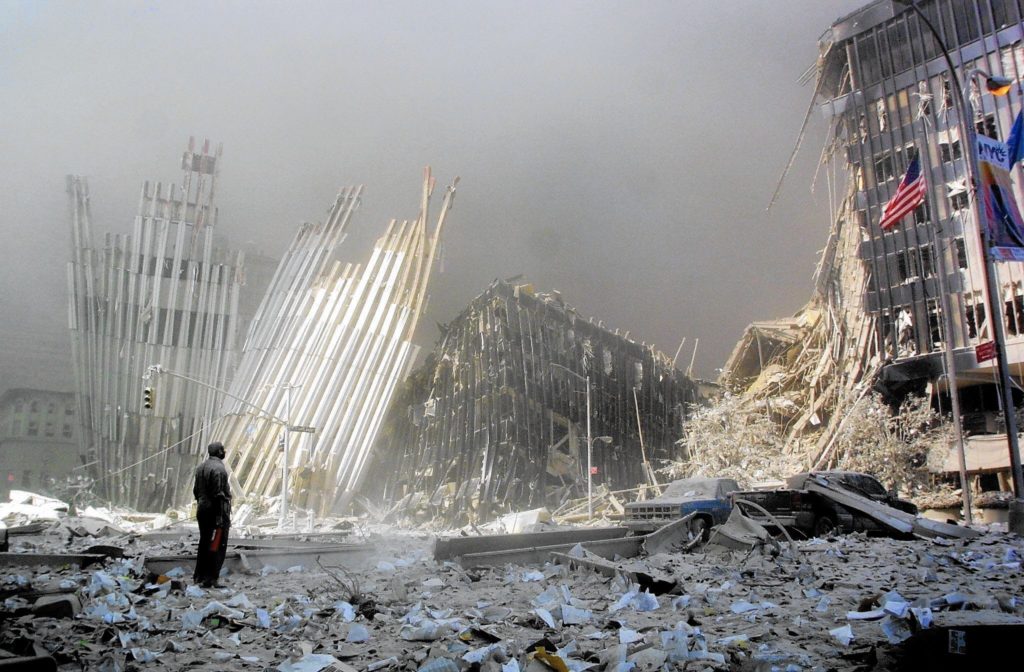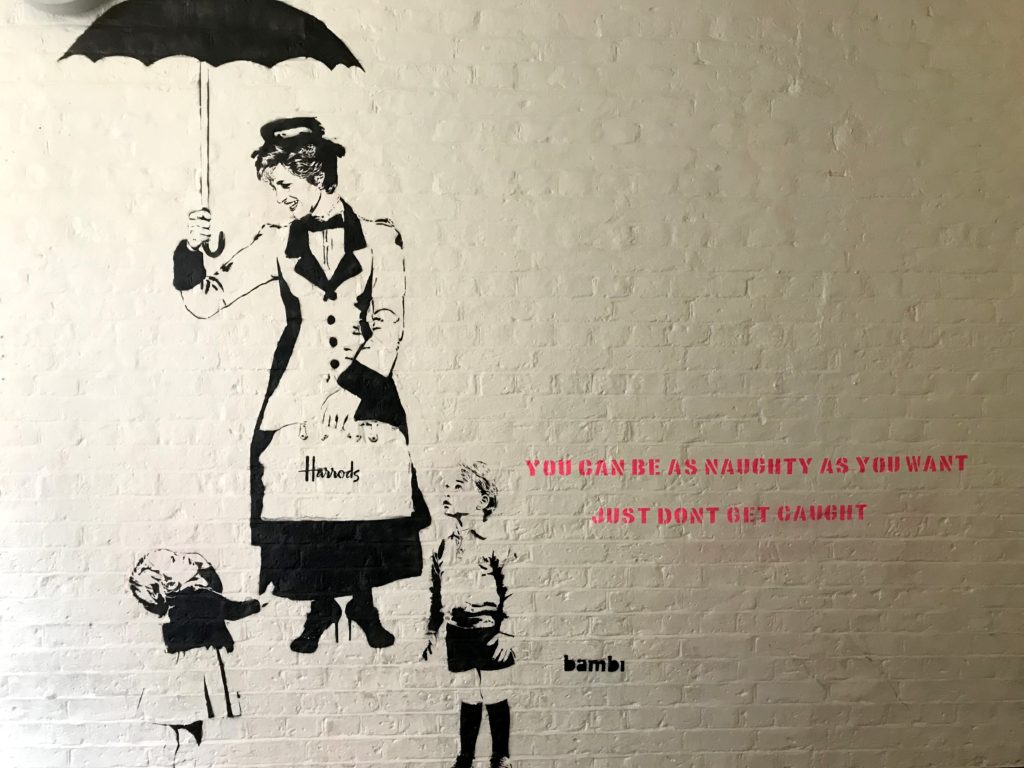The Daily Escape:

Man standing in rubble of the North Tower late on 9/11/2001, calls out in vain to possible WTC survivors – Photo by Doug Kanter
People say that they will never forget 9/11, but what Wrongo remembers is that it was the proximate cause of the war in Afghanistan, starting with our invasion on October 7th, 2001.
And now, we’ve been there for 18 years. The war in Afghanistan has led to the deaths of over 2,400 US soldiers, with another 1,100 coalition troops killed. Over 62,000 Afghan security forces personnel have died. Tens of thousands of Taliban fighters and thousands of Afghan civilians have also died. We’ve spent Trillions of dollars that could have been used here at home to make the lives of Americans better.
Eighteen years after the 9/11 attacks, it is still “wartime” in America. The War on Terror has been the primary driver for our government’s weakening the Bill of Rights. In the panic after 9/11, the GW Bush administration pushed through the Patriot Act, along with measures that permit torture, illegal surveillance, and indefinite detention without charges or trial. Our whistle-blower protections were weakened.
If these attacks on the Bill of Rights continue, we’ll have gone full-circle: back to a post-Constitutional America, sharing much with how colonial America was governed by the British King.
With this 9/11 Afghanistan meditation as background, after 18 years of fighting, what are we to make of Trump’s botched Afghan peace talks?
He was right to try. It’s past time that we exit Afghanistan. Much like when we left Vietnam, talks with the Taliban are not about ending the war, they’re about limiting US future military participation in Afghanistan.
In 1973, Nixon tried to create the appearance that we were exiting Vietnam on our own terms. We settled for the flawed “Agreement Ending the War and Restoring Peace in Vietnam.” Under that pact, American prisoners of war were freed by North Vietnam, and the last US combat troops in the south left for home, completing a withdrawal begun several years earlier.
Primary responsibility for defending South Vietnam fell to the Army of the Republic of Vietnam who we knew were incapable of holding the country. Our message to both North and South was: We’re outta here; you guys sort this out. And within two years, the Republic of Vietnam was gone.
Now, our military wants to shift its focus to China and Russia. So, here we go again, looking for a pretext that makes it seem that we’re leaving on our own terms, only this time, from Afghanistan.
Enter the Taliban talks. Trump’s “deal” relied on paper-thin assurances by the Taliban that there would be no haven for the terrorists, despite ISIS already being there in significant numbers. Al Qaeda is still active there, and is coordinating with the Taliban.
In return, the US would withdraw 5,000 of our 14,000 troops. We had no assurance that the Afghan government would agree to the deal, since the Taliban had refused to negotiate with them. Trump now says the deal is dead. Republicans think Trump’s move is an opportunity to reset the terms of the peace deal, which faced bipartisan criticism here, along with rejection by the Afghans.
Maybe.
Was much lost by walking away? Trump had planned on making a splashy announcement about bringing troops home on 9/11. He must have been channeling Camp David, where Jimmy Carter negotiated a peace agreement with Egypt and Israel in 1978, and where Bill Clinton did the same with the PLO and Israel in 2000. So, Trump’s lost something.
But he realized the meeting wasn’t going to happen. The Taliban wasn’t going to visit the US unless the deal was signed, but Trump wanted more deal-making, followed by a signing at Camp David. The Taliban aren’t fools. Getting on a plane without a signed deal could have landed them in Guantanamo, not in Washington DC.
Peace isn’t obtained by photo-op. It requires sound planning, the participation of all parties, and exacting negotiations. Offering to host the Taliban during 9/11 also shows tone-deafness. These are the very people who gave cover to Osama Bin Laden!
However and whenever the US leaves, much like in Vietnam, the Taliban will become the government of Afghanistan, despite our 18-year effort. We now seem unwilling to say: “you guys sort this out”, so our longest war will continue. It will be accompanied by more death, and more money flushed down the rat hole.
We should also expect most Republicans and quite a few Democrats will remain silent.
Have all of these lives lost, and the trillions of dollars spent, taught us anything?




